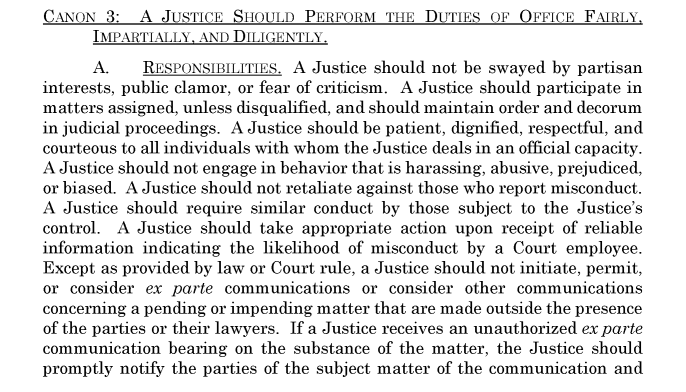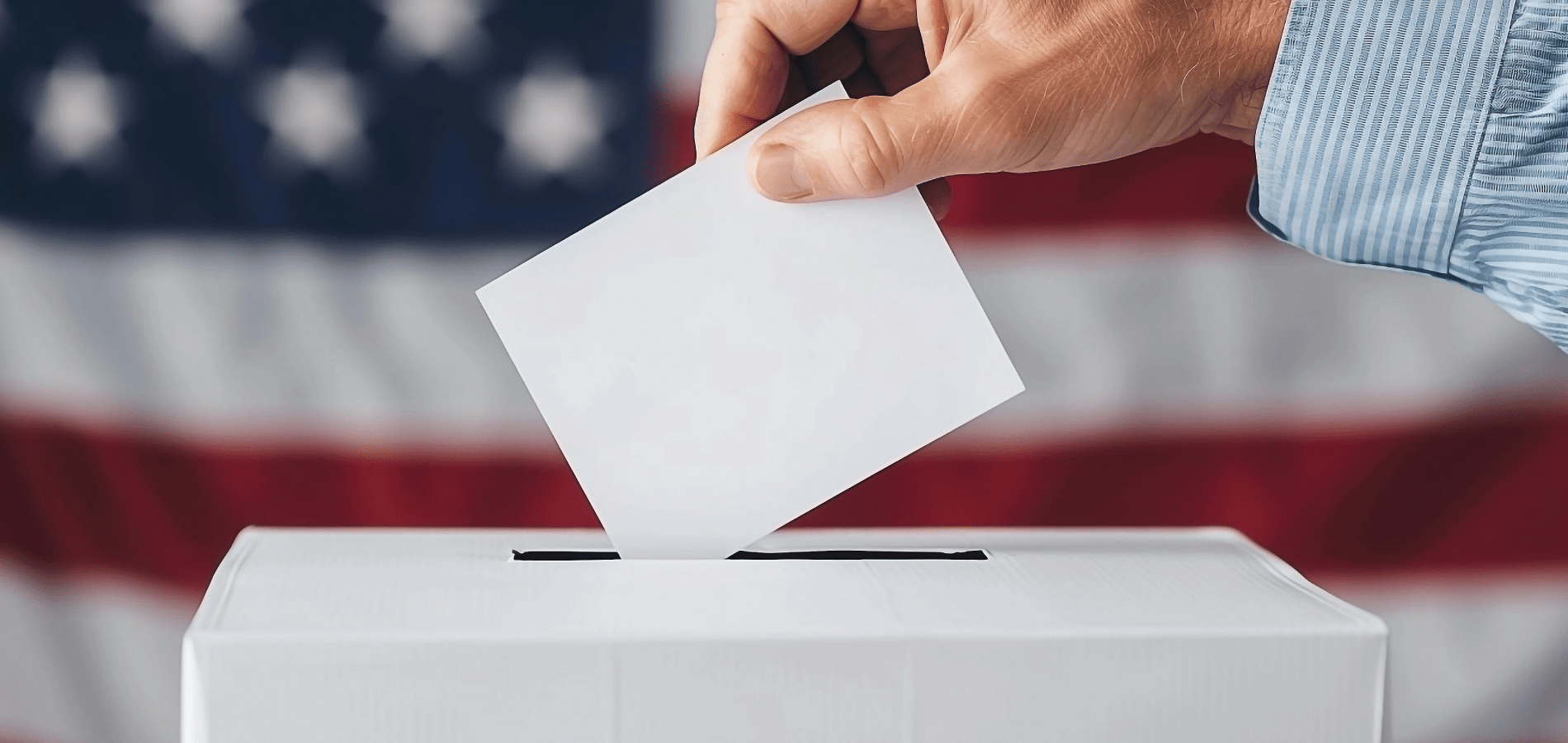In a poll conducted prior to the October 2023 term, results indicated the Supreme Court approval rate is nearing an all-time low. Over the past few months, criticism over undisclosed trips and gifts from wealthy benefactors to some justices has grown from both the public and Congress. Amidst these allegations, both Justices Amy Coney Barrett and Elena Kagan openly endorsed the push for an ethics code. On Monday, the Supreme Court announced the first-ever code of conduct governing the ethical behavior of its nine justices. The newly released code was signed by all nine justices.
While the method and authority responsible for enforcing the code remain unclear, let’s take a closer look at what the code covers.
A Breakdown of the Code of Ethics
Within eight pages, the Code of Conduct for Justices of the Supreme Court of the United States is broken down into five canons. We’ll explore each one below.
Canon 1: A Justice Should Uphold the Integrity and Independence of the Judiciary
The first canon concisely states that a Justice of the Supreme Court is expected to adhere to elevated principles of behavior and maintain a high standard of ethical conduct in the execution of judicial duties.
Canon 2: A Justice Should Avoid Impropriety and the Appearance of Impropriety in All Activities
The second canon is broken down into a few subsections and it highlights the importance of upholding the law while also promoting confidence in the justice system among the public. Furthermore, it emphasizes that personal relationships and affiliations—whether familial, social, political, or financial—should not impact their official conduct or judgment. Lastly, it says a Justice is expected to avoid affiliations with groups that promote or tolerate unfair and prejudiced treatment toward individuals, reinforcing the commitment to justice and impartiality in the legal system.
Canon 3: A Justice Should Perform the Duties of Office Fairly, Impartially, and Diligently
This section is broken down by responsibilities and disqualifications. In essence, the responsibility guidelines aim to ensure that a Justice maintains integrity, impartiality, and professionalism in the execution of their judicial responsibilities.

Specific instances that may warrant disqualification include:
- Personal bias or prejudice concerning a party or personal knowledge of disputed facts.
- Previous representation of a party or association with a lawyer who served as a lawyer for a party in the same proceeding.
- Financial interest in the subject matter.
- Knowledge that the Justice, their spouse, or a closely related person is involved in the proceeding as a party, lawyer, or witness.
- If the Justice used to work for the government and acted as a judge, provided legal services, served as an advisor, or had firsthand information about a case.
- If the Justice’s spouse or a close relative (up to the third degree) or the spouse of such a person is known by the Justice to have worked as a main lawyer in the lower court or is a significant partner in a law firm representing a party in the Court’s case.
Canon 4: A Justice May Engage in Extrajudicial Activities That Are Consistent with the Obligations of the Judicial Office
The fourth canon indicates that a Justice is allowed to engage in activities outside of their judicial role, such as those related to law, civic duties, charitable work, education, religion, social activities, financial matters, fiduciary responsibilities, and government involvement. However, there are limitations, such as avoiding speaking at events sponsored by political parties or election campaigns. Additionally, a Justice should not act as an arbitrator or mediator or perform judicial roles outside of their official duties unless the law allows it or act as a lawyer for a family member in any legal setting.
The canon also covers topics such as financial activities, including refusal of gifts to themselves or any family member residing in their home. However, a Justice may accept compensation or reimbursement of expenses for permitted activities if said payments do not influence a Justice’s official duties.
Canon 5: A Justice Should Refrain from Political Activity
The final canon restricts a Justice from engaging in political activities, making a speech for a political group, buying tickets for events sponsored by political organizations, or soliciting funds for political organizations. Lastly, a Justice must resign if they decide to run for any office in a primary or general election.
HeinOnline: The Database Supreme
Did you know there is a plethora of content within HeinOnline related to the Supreme Court? Here is a brief overview of what you can access with our database:
- U.S. Supreme Court Library: An online database including the official U.S. Reports, as well as preliminary prints, slip opinions, and more titles related to the U.S. Supreme Court.
- History of Supreme Court Nominations: Featuring the definitive documented history of both successful and unsuccessful Supreme Court nominations through that of Associate Ketanji Brown Jackson.
- Preview of United States Supreme Court: An online version of Preview of United States Supreme Court Cases that provides comprehensive expert analysis of all cases argued before the Supreme Court prior to the arguments.
- Judges and the Judiciary: Exploring America’s Court System (formerly Congress and the Courts): A fully revamped collection compiling comprehensive resources that analyze how the complex web of judiciary structures, composition, oversight, procedures, and actions within America’s court system touches the lives of everyday Americans. This database has a specific subject-coded section for Judicial Ethics!
But that’s not all. Learn more about the Supreme Court from our very own blog!



